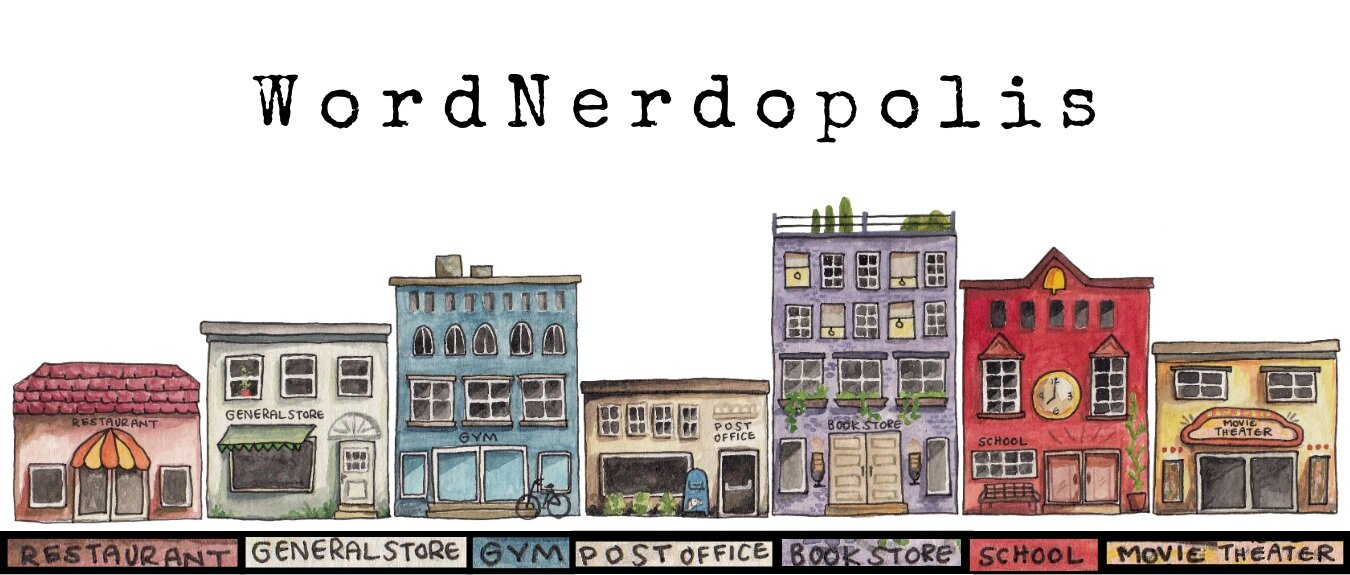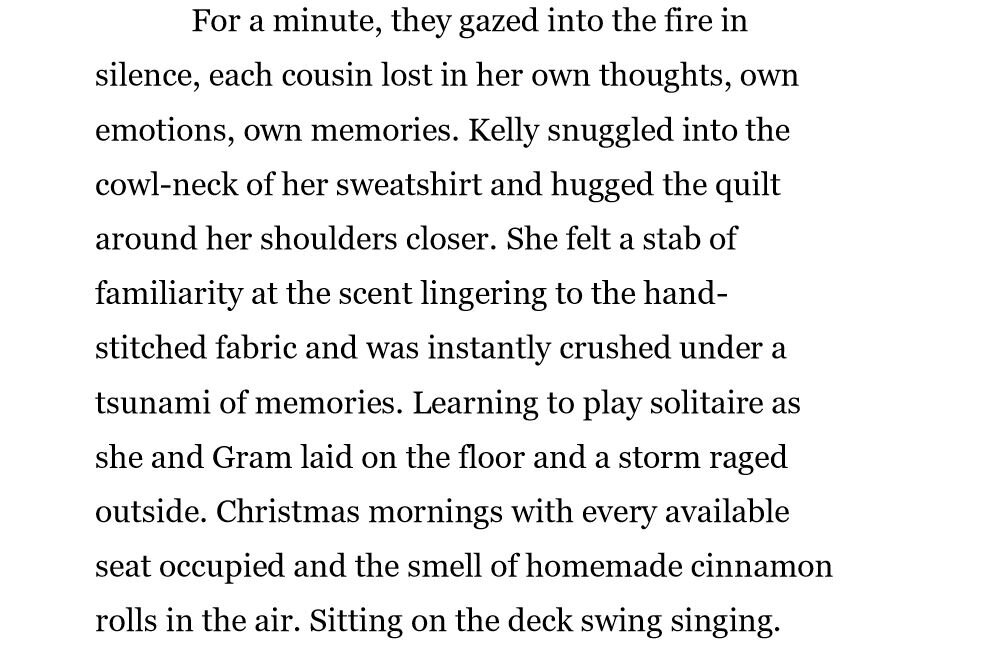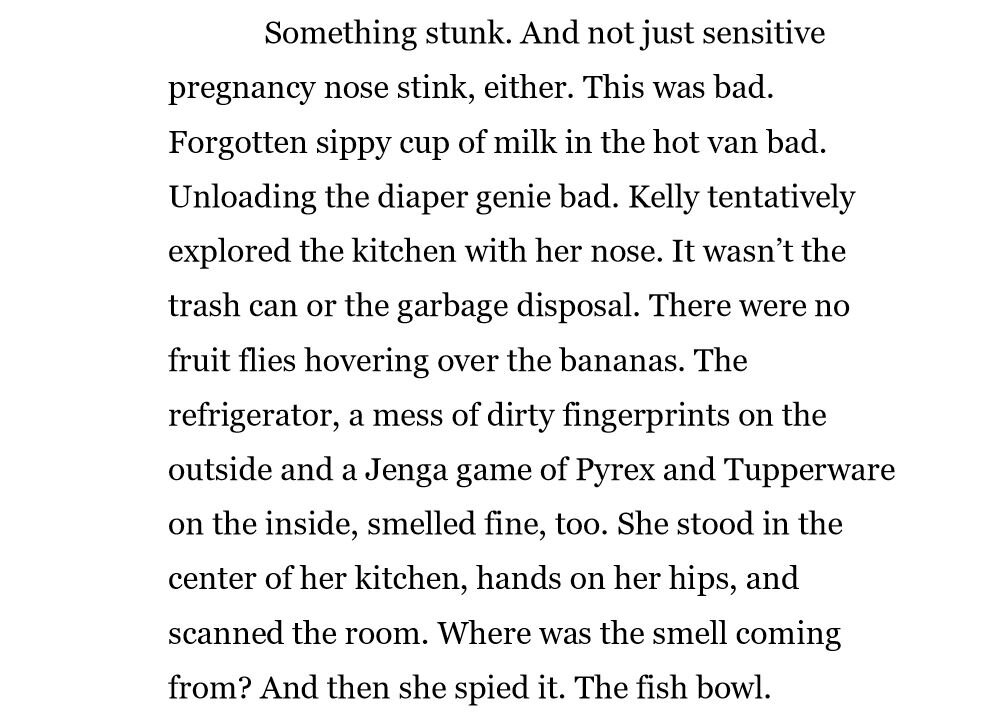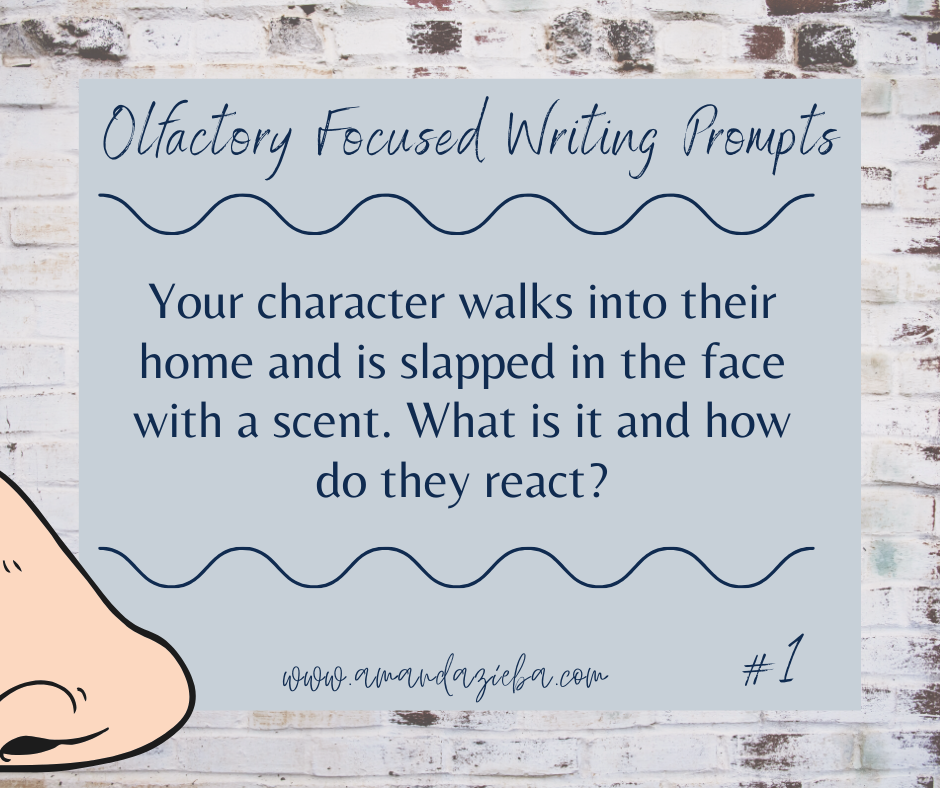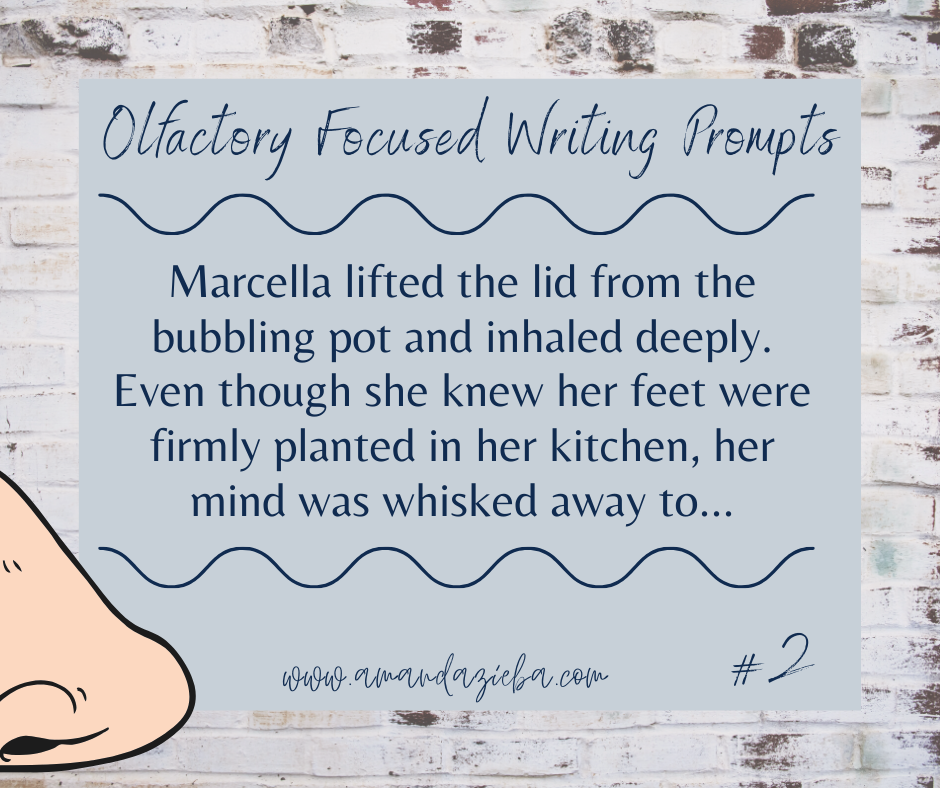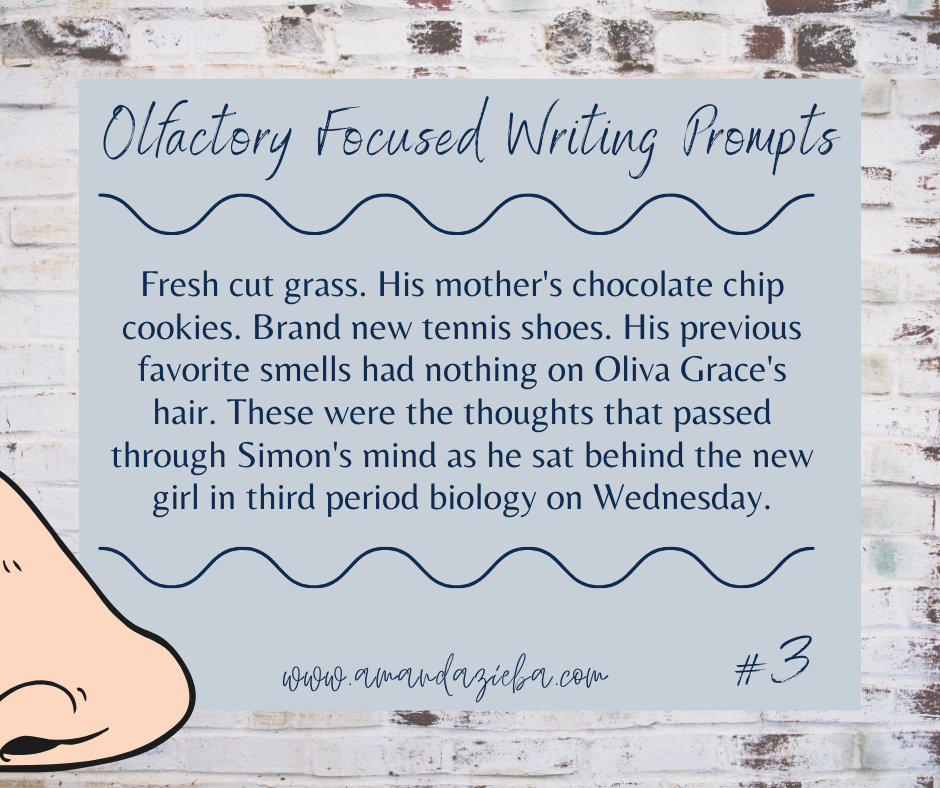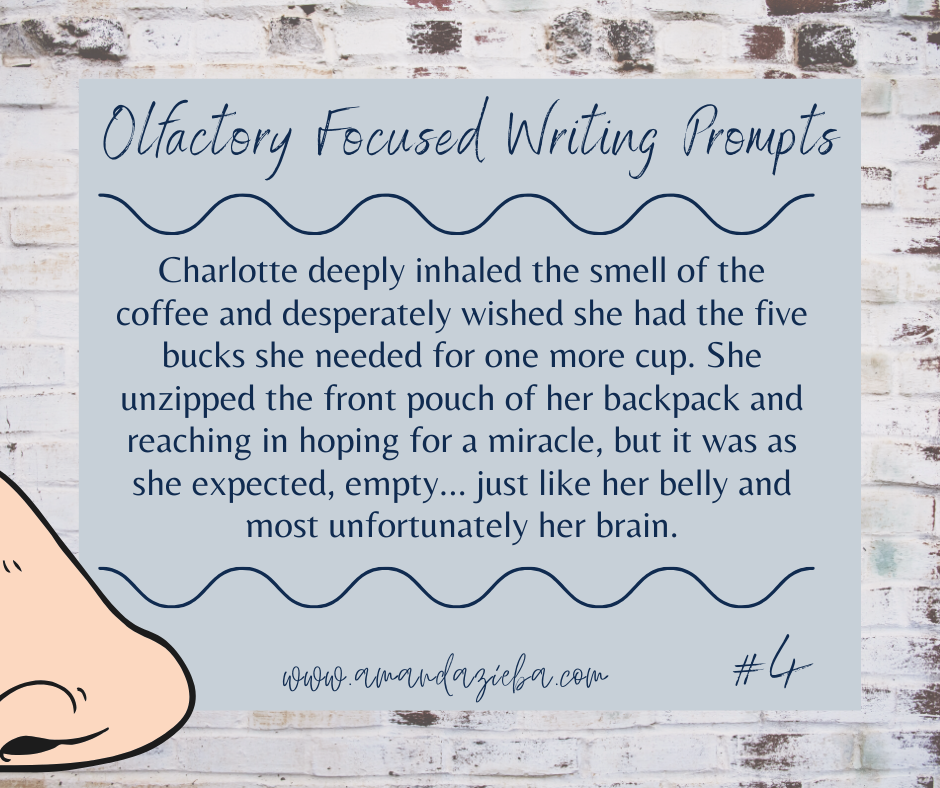Writing with the Sense of Smell in Mind
Two things make me crabby. The first is being woken up. I live my best life on eight to ten hours of sleep. I love my children, but when they wake me in the middle of the night or before my alarm sounds, I wish for them to cease to exist.
And the second thing is smells, specifically bad smells. I live in a house with three males. Farting and lengthy trips to the bathroom are not uncommon. Its the worse when we are all trapped in a car. The nasty smell from an over ripe dishwasher or pungent laundry hamper can also instantly crash my mood. The opposite is true of a good smell. A great candle, my mom’s spaghetti sauce, a fragrant whiff from a coffee shop… these things can perk me up in the space of a second.
It’s kind of crazy, and I know illogical. It’s not like people or inanimate objects intentionally try to piss me off or cheer me up with their odor. But they do. I have attempted to use smelly experiences in my writing a time or two. For example, check out these two scenes, one a good smell and the other not-so-much, from my novel Close Quarters.
Good Smell
Bad Smell
Reflecting on these thoughts and scenes got me thinking, why don’t I use the sense of smell as a writing tool more often? In general, why don’t authors lean on this sensory experience more often?
“The sense of smell is closely linked with memory, probably more so than any of our other senses. Those with full olfactory function may be able to think of smells that evoke particular memories; the scent of an orchard in blossom conjuring up recollections of a childhood picnic, for example. This can often happen spontaneously, with a smell acting as a trigger in recalling a long-forgotten event or experience. ”
It is with these ideas, scenes and thoughts in mind that I have created four olfactory focused writing prompts. Pick one or two and give them a try. Then reflect. What was the result? What emotions or memories were evoked while writing? Try reading your scene out loud and asking the listener to share the emotions they felt. How are these scenes and reactions different than if you would have focused on the sensory experiences of sight, taste, sound or touch?
Get your sniffers and your pencils ready.
Happy writing,
Amanda Zieba
P.S. If you end up writing something you like, feel free to send it my way! I’d love to read it!
If you liked what you read on my blog today (or are in search of weekly word nerd goodness) and would like to have it delivered to your inbox every Wednesday morning, you can sign up HERE. If you are interested in any of my email lists (with free goodies/downloads!) click the audience that best describes you: Writer. Teacher. Reader. As always, feel free to share this post with others you think might be interested via email, Facebook or Pinterest.
Today’s post post was made beautiful by CANVA and is categorized in my blog archive under WRITING TIPS. Check out the entire collection here.
